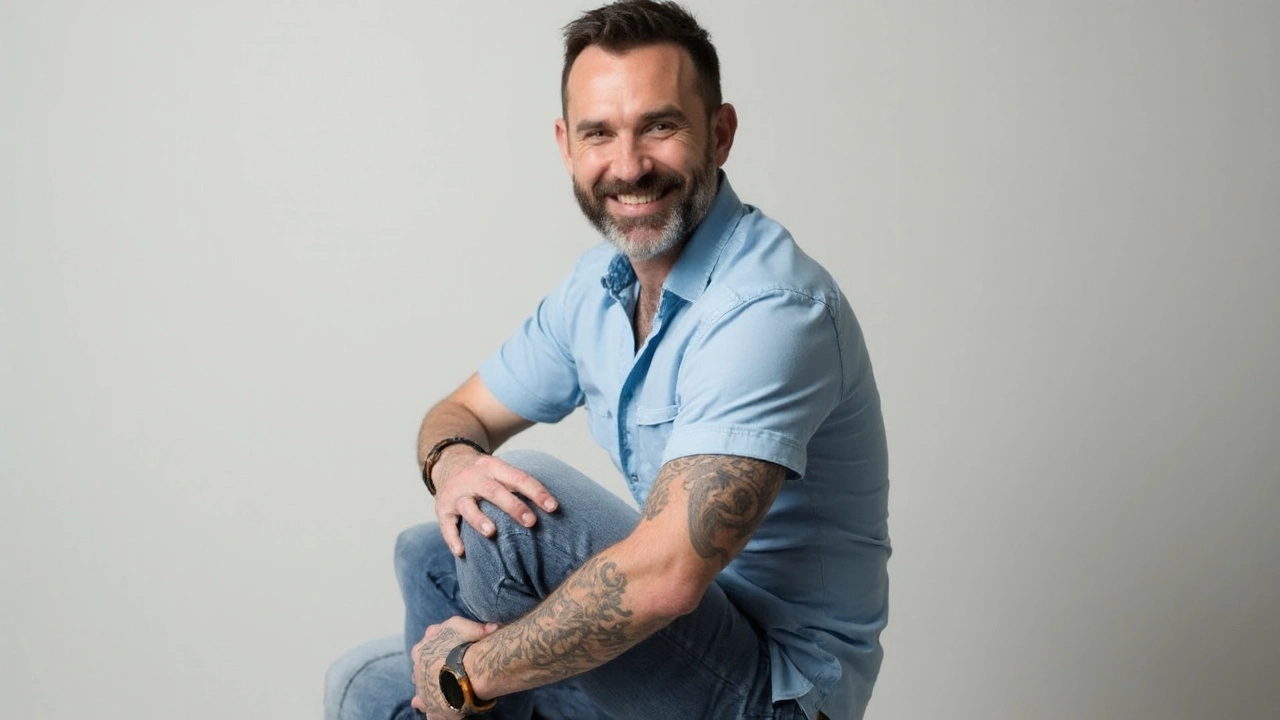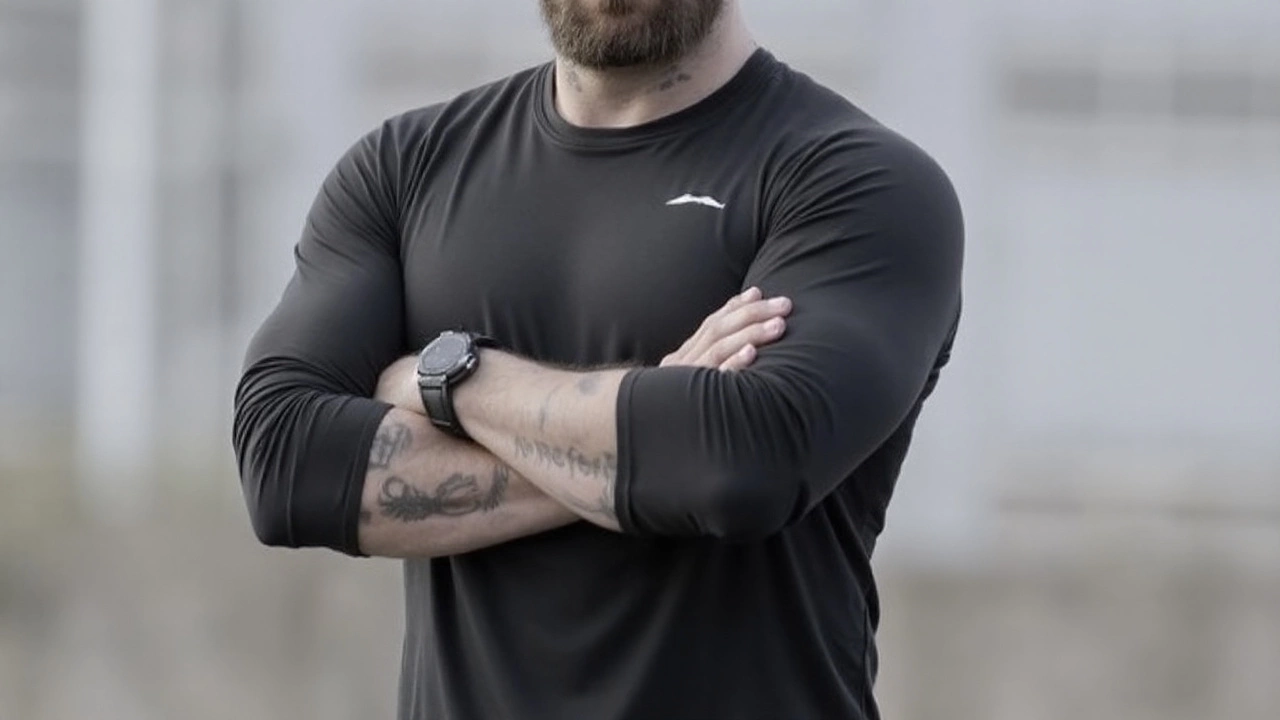
Ant Middleton spent years building the kind of armor you can’t see. Now, at 39, he says that shell is cracking—and he loves it. The former soldier turned TV presenter and author describes a slow, deliberate unpeeling of the hard exterior forged by the military. He calls it a relief, even a release. Not a loss of grit, but a switch from survival mode to something more human.
From barracks to broadcast
Middleton’s story doesn’t start on a parade square. It begins in northern France, where he moved at nine with his mother and stepfather. He was a respectful kid by his own account—sporty, cheeky, not academic. The military came into view thanks to his stepfather’s friend, a major who painted a picture of the physical and mental tests waiting beyond the gate.
At 16, he jumped. The shock was immediate. Gone were the slow afternoons and milkshakes; in came the alpha pecking order and a brutal rhythm where you earn your place daily. He describes that transition as a jolt to the system. The rules were clear: speak less, do more, toughen up. That’s how the armor formed—layer by layer, exercise by exercise, deployment by deployment.
Afghanistan hardened that shell further. Middleton talks about the reality of raids and door-kicking operations that compress fear, focus, and force into a single burst. Survival means control—of your emotions, your reactions, your teammates’ trust. It’s a useful mindset in war. Outside it? Not so much. He now looks back at that version of himself and barely recognizes the man from six years ago, while feeling oddly familiar with who he is today.
What changed? The work did. He moved from the battlefield to the spotlight, first as a face of high-adrenaline television. His breakout came with SAS: Who Dares Wins, the series that puts civilian and celebrity volunteers through special forces-style selection. The show turned his command presence into a brand—sharp, uncompromising, clear. It also gave him a new mission: showing people they’re capable of more than they think.
Books cemented the pivot. Writing forced reflection, the kind that doesn’t fit neatly into a kit bag. The training lore and field rules that once lived in muscle memory became stories, frameworks, and lessons. On stage and on the page, he found an audience not for toughness alone, but for honesty about why toughness exists—and when to put it down.
That’s why he now talks about belonging. He says he feels more at home in TV and writing than he ever did in uniform. Not because the military didn’t matter, but because that life was situational—an intense and necessary response to extreme environments. Viewed from today, some of it feels almost bizarre. The distance makes sense: he’s swapped short, violent bursts of clarity for long stretches of self-examination and creative work.

Letting go of the armor
Middleton doesn’t pretend the hard exterior was fake. It was earned and essential. But he also points out what many veterans quietly learn: the shell that protects you in combat can isolate you in civilian life. Family moments, creative collaboration, even basic conversation—none of these flourish under constant guard. Softening isn’t surrender; it’s recalibrating the toolset for a different job.
He also recognizes that people carry different exteriors for different rooms. In a firefight, you need the unflinching version. On a TV set or with a publisher, you need curiosity, patience, and a little vulnerability. Audiences respond to that shift. They still want the discipline and straight talk, but they also want to see what it looks like when someone rewrites their own rules without losing their edge.
He’s careful with how he frames courage now. Before, it meant kicking a door. Today it can mean admitting you’re not the same person you were, or that the thing that once made you powerful is now getting in the way. That’s a subtler bravery—the kind you can’t measure in reps or ranges. It’s also the kind that resonates with people facing their own pivots, whether they’re leaving a job, a sport, or an identity they thought was permanent.
Television has become a testing ground for this softer power. The format still pushes people to their limits, but Middleton’s role has evolved from pure enforcer to translator—someone who reads fear, frames it, and helps contestants use it. The soldier who once told himself to feel nothing now makes a living talking through feeling and then moving anyway.
The shift has a rhythm. Where deployments used to dictate the calendar, now it’s seasons, shoots, edits, and book tours. The adrenaline is different. So is the accountability. When you’re the brand, you carry the message beyond the moment. That pressure can be heavy, but it’s also freeing: you decide what to say about who you are.
He keeps circling back to the same point: the exterior is not the person. It’s a tool, a layer, a response to context. Underneath, he says, there’s the same respectful, cheeky kid from northern France—the one who liked sport and needed a challenge. He just swapped the challenge. And for now, he sounds relieved to be choosing his battles.
Middleton’s story doesn’t tidy itself into a neat before-and-after. He still carries the habits and instincts he learned in uniform. He still thrives in pressure and performance. But he’s trading blunt force for balance. The shell is thinner by choice. He calls that a good thing. A nice thing, even. Which might be the most surprising part.
If there’s a through-line, it’s this: strength that never bends is brittle. By letting the armor loosen, he hasn’t lost the toughness that made his name—he’s just made room for the man who wears it.